Muscle Building Workout at Home with Dumbbells
Are you ready to build muscle at home? All you need is a bench, dumbbells, and a solid workout schedule, which I’m about to give you.
This workout routine is based on basic yet effective exercises you can do with dumbbells-only. And of course, you can do this in your own home (or garage).
You’ll also get images of each dumbbell exercise with a description of each. And I’ll also give you some tips at the end to help make your workouts more intense.
Benefits of Working Out at Home
There’s something to be said about the gym atmosphere. You’ve got the mirrors and training around others can be motivating.
But you may not always have time to drive to the gym, workout, and drive back home. Or you may get to the gym but it’s too crowded and you have to wait for your machines.
So before we get into your workout routine let’s go over the benefits to working out with dumbbells at home that out’weigh’ going to a gym. Here are a few…
- No gym crowd!
- No waiting for equipment
- No commute to the gym (saves time, gas, and wear and tear on your vehicle)
- Far less risk of getting sick
- Your workouts may be shorter and more focused at home
- You may find that it’s easier to stick to your workout schedule when training at home
*What You Need
You only need 2 things:
- Bench
- Dumbbells
If possible, get an adjustable bench like the one below. This is the Bowflex SelectTech Adjustable Bench on Amazon.
*You can see by the reviews that this is a top recommended bench.

For dumbbells, you could go to a sports store and get them used. Or you could get 1 light pair that you can use for everything.
Or if your budget allows, you could buy adjustable dumbbells like the PowerBlock Personal Trainer Dumbbells on Amazon.

Dumbbell-Only Workout Routine at Home

Now let’s jump into the new workout routine that you can do at home. Here are some important notes about the workout:
- This is a 5-day a week routine
- Each workout will take about 15-25 minutes
- You’ll train most muscles once within that week; you’ll train legs and back twice a week (I will explain why below)
- Your rest time between sets will be 30 seconds
- You’ll perform the exercises in a circuit (this will make more sense when we get into the workouts below)
- Beginners can go through each circuit twice
- Intermediate to advanced should do each circuit 3 or more times
- On leg days, do 1 extra circuit
Training Split
The below is an example of a good training split to follow. Of course, you can arrange your training days to fit your schedule.
- Monday: Workout 1
- Tuesday: Workout 2
- Wednesday: Workout 3
- Thursday: Workout 4
- Friday: Workout 5
- Saturday: rest
- Sunday: rest or you can start the routine again
**If you’re serious about taking your home workouts to the next level, be sure to read about my recommended muscle builder.
Workout 1: Chest and Back
| Exercsie 1 | Dumbbell Press |
| Exercise 2 | Dumbbell Bent-over Rows |
| Exercise 3 | Incline Dumbbell Press |
| Exercise 4 | Dumbbell Rows |
| Exercise 5 | Dumbbell Flyes |
| Exercise 6 | Renegade Dumbbell Rows |
Dumbbell Press
This is just like doing barbell bench press but you’re actually getting a deeper stretch and better muscle contraction with dumbbells.
Dumbbell Bent-over Rows
Make sure you don’t round your back on these. When you pull the dumbbells back flex your back muscles to get that contraction.
Incline Dumbbell Press
This is the same movement you did for your first exercise but you’re raising the bench so that it’s at a slight incline. This will work your upper chest more, which is an area of development many lack.
Dumbbell Rows
Single-arm dumbbell rows are a classic mass building exercise for your back. Get a good stretch at the bottom and keeping your elbow close to your side, pull the weight up using that side of your lats.
Dumbbell Flyes
This is one of the best finishing moves for your chest. Doing dumbbell flyers allow you to get a deep stretch in your pecs and an awesome muscle contraction at the peak of the movement.
Renegade Rows
Renegade rows are no doubt a tough exercise, so start out light. Place your hands about shoulder-width apart, gripping the dumbbells. You may need to shift your body weight to balance as you pull the one arm up.
**If you’re interested in a full bodybuilding workout program that you can do in the gym, read my post: 9 Bodybuilding Workouts for Mass
Workout 2: Legs
| Exercsie 1 | Dumbbell Squats |
| Exercise 2 | Dumbbell Stiff-leg Deadlifts |
| Exercise 3 | Dumbbell Sumo Squats |
| Exercise 4 | Dumbbell Lunges |
| Exercise 5 | Toe Raises |
Dumbbell Squats
Squats are often noted as the king of exercises for building muscle. But you can do these just as effectively with dumbbells. Hold the dumbbells up above your shoulders (some will hold them higher over their head) and squat as if you were doing a normal barbell squats. Keep that natural curvature in the motion.
Dumbbell Stiff-leg Deadlifts
This is one of the absolute best exercises for your hamstrings. On that note, you really have to focus on using your hamstrings to pull the dumbbells back up. So tap into your mental energy here, and don’t round your back.
Dumbbell Sumo Squats
Sumo squats are done with a wider stance than the regular squats you did earlier. You’ll work your quads but also stimulate your inner thighs and hip flexors.
Dumbbell Lunges
Try to not let your knee go over your foot when you do your lunges. You can also do multiple reps with one leg before going to the next if you choose. This is a great way to start to help you keep your balance.
Toe Raises
Now it’s time to work your calves. When you’re on your tip-toes flex your calf muscles as hard as you can and hold it for 2-3 seconds. This will really make a difference in building those muscles.
Workout 3: Shoulders and Back
| Exercsie 1 | Seated Dumbbell Press |
| Exercise 2 | Reverse Grip Bent-over Rows |
| Exercise 3 | Lateral Raises |
| Exercise 4 | Dumbbell Rows |
| Exercise 5 | Front Raises |
| Exercise 6 | Bent-over Raises |
Seated Dumbbell Press
Dumbbell press is an excellent way to build muscle in your shoulders. It a straight-up movement against gravity and will help you pack on mass, building those wide shoulders.
Reverse-grip Bent-over Rows
This is another way you can do bent-over rows, with a reverse grip. This is going to hit a different part of your back muscles; your lower lats. Pull the weight towards your lower torso and contract our back muscles.
Lateral Raises
Another exercise to develop wide shoulders is lateral raises. Don’t be concerned with how high you can raise the dumbbells. If you try to go too high you’re not going to target your delts as much. Also, use strict form and don’t swing the weight or use momentum.
Dumbbell Rows
You also did this exercise in the first workout for your back. Dumbbell rows are super-effective at building your back muscles.
Front Raises
Like lateral raises, use strict form. You can even try to hold the dumbbell up for 2-3 seconds in front of you. This will make those front shoulder muscles pop out.
Bent-over Raises
In order to have well-rounded and full shoulder development, you need to pay attention to your rear delts. These muscles are also worked when training back but it’s good to target them directly with bent-over raises.
**You may have noticed that this workout and your first workout of the week is workout contrasting muscles together.
This method can help you build muscle while burning fat, and it’s the basis of my premium Lean Muscle Building Program.
Workout 4: Arms
| Exercsie 1 | Seated Overhead Dumbbell Extensions |
| Exercise 2 | Dumbbell Hammer Curls |
| Exercise 3 | Lying Tricep Extensions |
| Exercise 4 | Alternating Curls |
| Exercise 5 | Dumbbell Kick-backs |
| Exercise 6 | Concentrated Curls |
Seated Overhead Dumbbell Extensions
Hammer Curls
Lying Tricep Extensions
Alternate Curls
Kick-backs
Concentrated Curls
Workout 5: Legs
| Exercsie 1 | Dumbbell Sumo Squats |
| Exercise 2 | Dumbbell Stiff-leg Deadlifts |
| Exercise 3 | Dumbbell Squats |
| Exercise 4 | Step-ups |
| Exercise 5 | Toe Raises (1-leg) |
Dumbbell Sumo Squats
For your second leg workout (and final workout of the week) you’re simply going to change the order of the 2 types of squats. Here you’re starting with sumo squats. This is just a great way to mix things up.
Dumbbell Stiff-leg Deadlifts
This is the same exercise you did in your first leg workout (workout 2). Stiff-leg deadlifts are a great exercise to do after squats as it works those contrasting muscles.
Dumbbell Squats
Now you’re doing dumbbell squats. These are going to feel tougher than before since you’re saving them for the third exercise. Squats are the one exercise that probably uses the most effort.
Step-ups
This is another part of your leg workout that’s different from your first one. instead of lunges, you’re doing step-ups. You can use a bench or find something like a box that’s a little higher. This is really going to target your glutes but also the rest of your leg muscles too.
Toe Raises 1-leg
You’ll end with single-leg toe raises. This is going to require some balance, especially at first. So you may want to hold onto something with one hand. Of course, it’s going to be harder as you’re doing a toe raise with more weight (using one leg instead of both).
Abs and Cardio at Home
You can also do 2-3 sets of a couple of ab exercises after each workout if you choose. However, you may find that you don’t need it.
Working out with dumbbells requires more balance than training with a barbell or machines. That said, you’re going to be keeping your entire body including your core tighter throughout every exercise.
For cardio, you can take advantage of the outdoors and go walking or jogging. And if you really want to ramp things up, set apart 30-40 yards and run sprints.
Or you could decrease your rest between sets during your dumbbell workouts. That may be enough to increase your heart rate during your workout.
**If your primary goal is to burn fat while building or maintaining muscle, you should read about my recommend fat burner created for MMA fighters, Instant Knockout.
Tips for Building Muscle at Home
This workout with dumbbells proves you can indeed build muscle at home. Just know that you need to train just as intense as you would at the gym. Because sometimes your home environment can be too comfortable or distracting.
So here are some tips to keep your workouts intense and build muscle at home:
- Have a dedicated room or space to workout at home
- Eliminate any distractions (put away your phone)
- Make sure everyone in your household realizes how important your workouts are and that you are not to be disturbed during that time
- Make a strict training schedule and stick to it
- Crank up some music like the Heavy Metal Workout album
If you found this to be helpful, please share it on your social media.
Excuses Don’t Build Muscle,
Jason
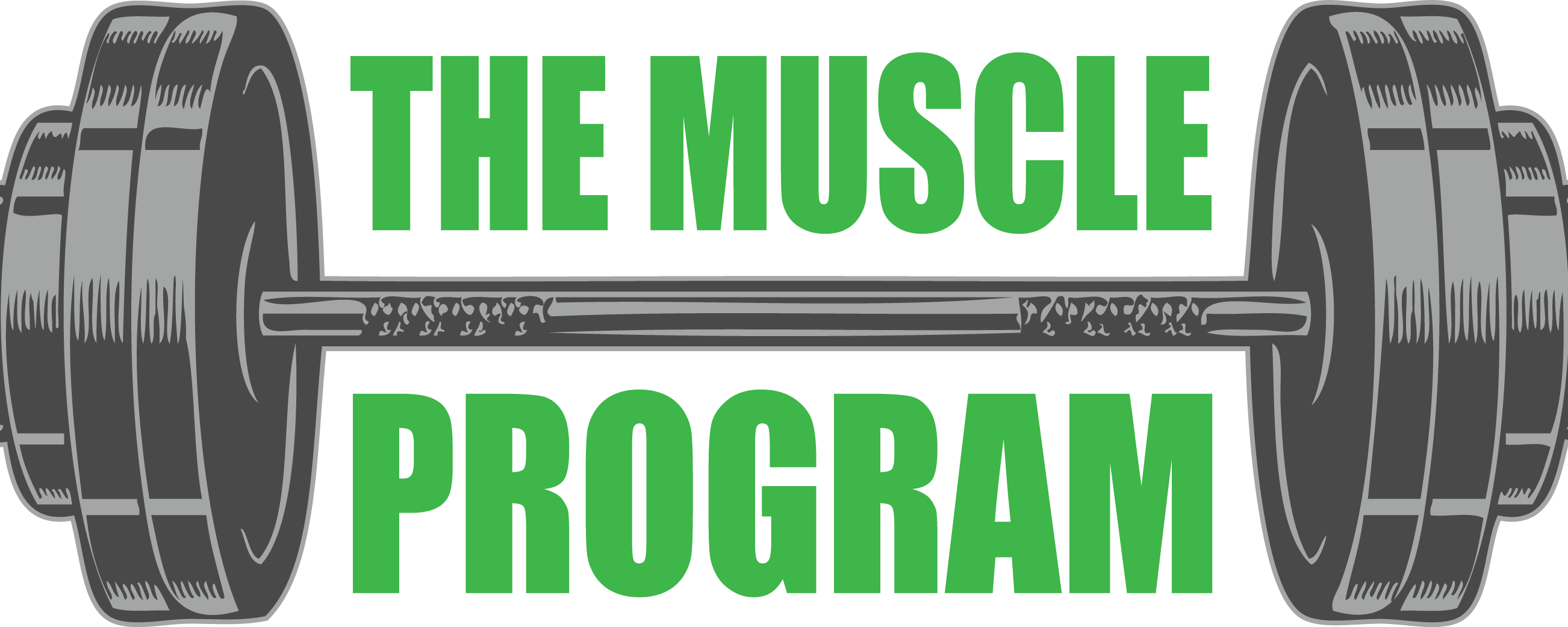
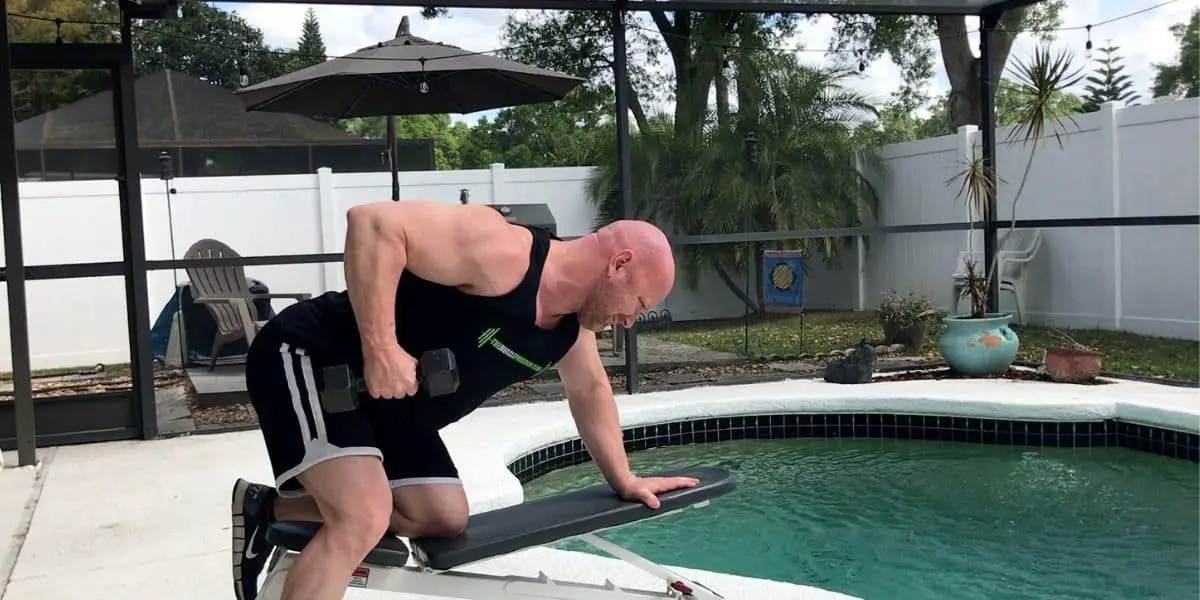

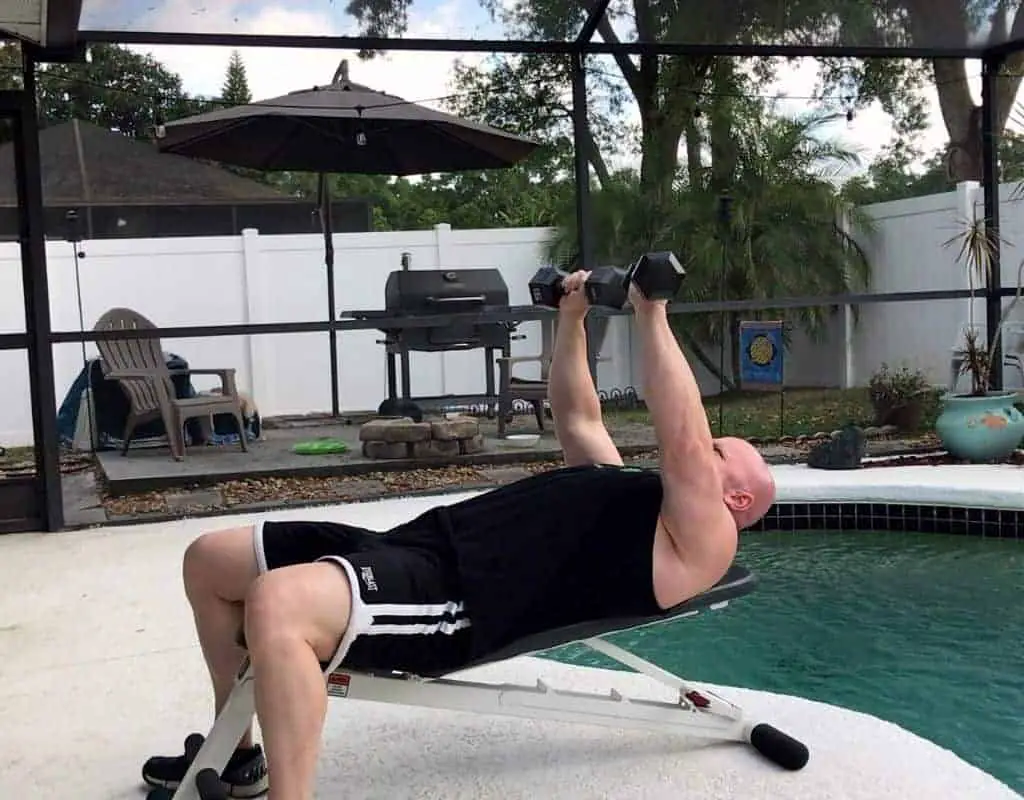







































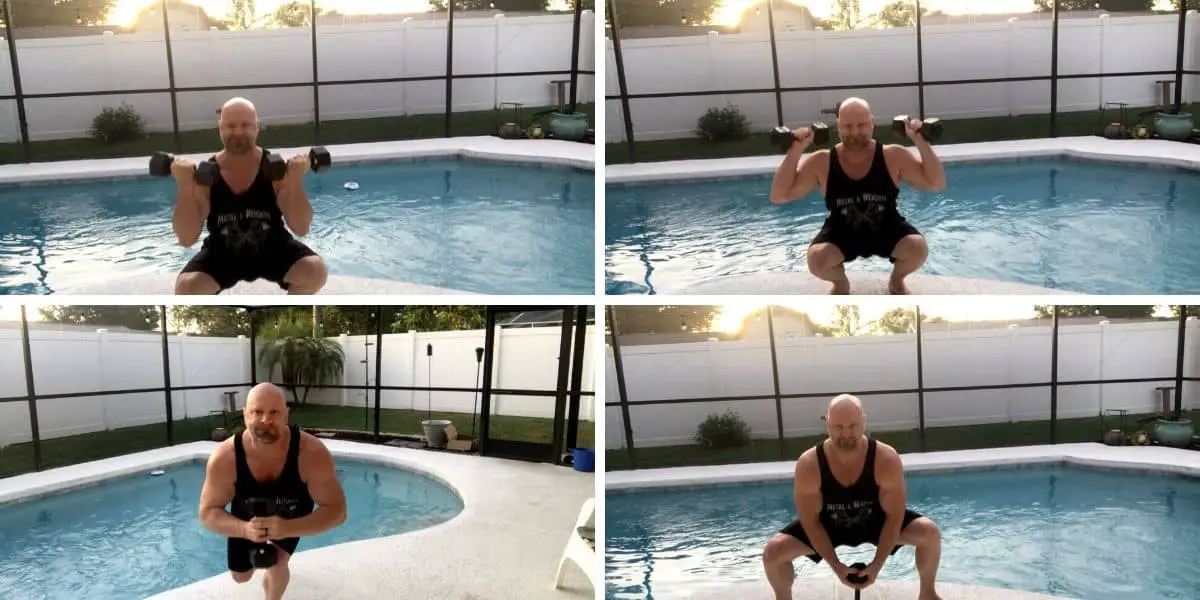
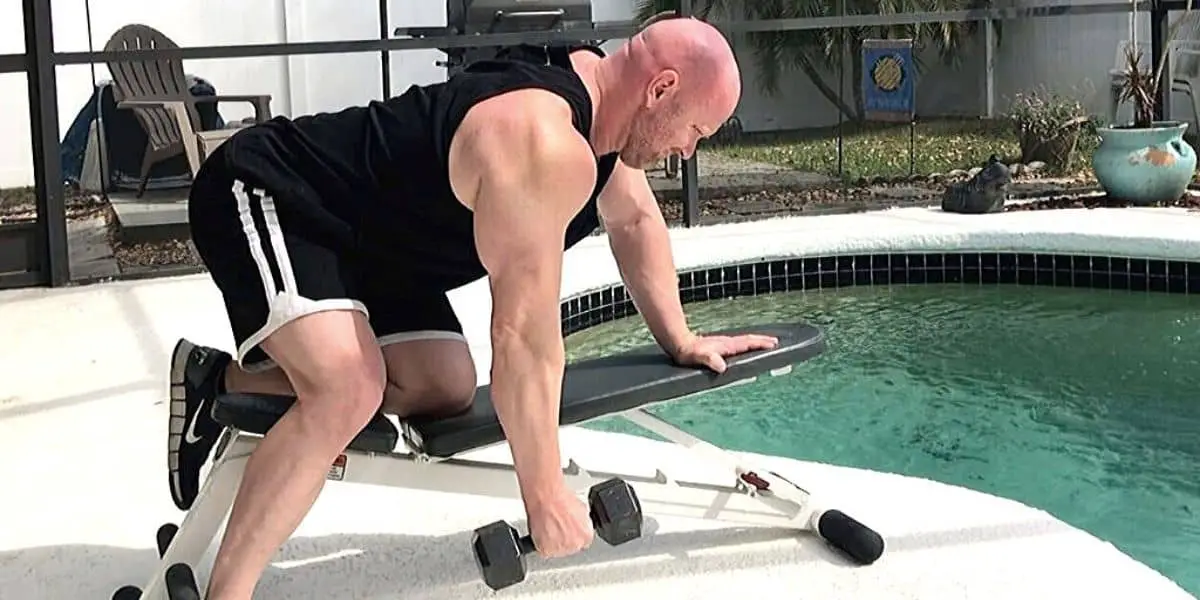
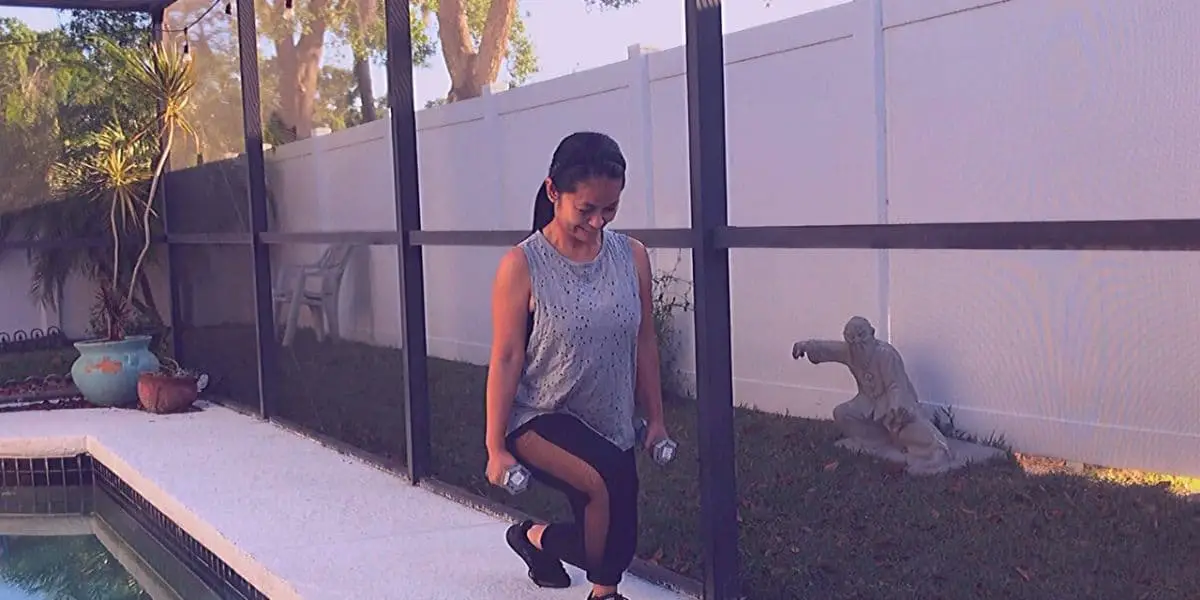
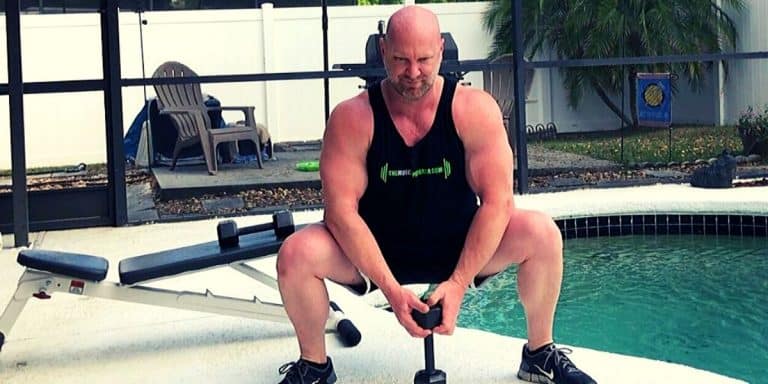
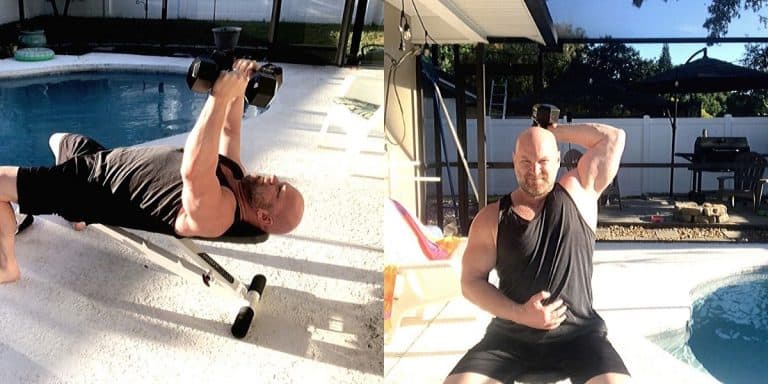
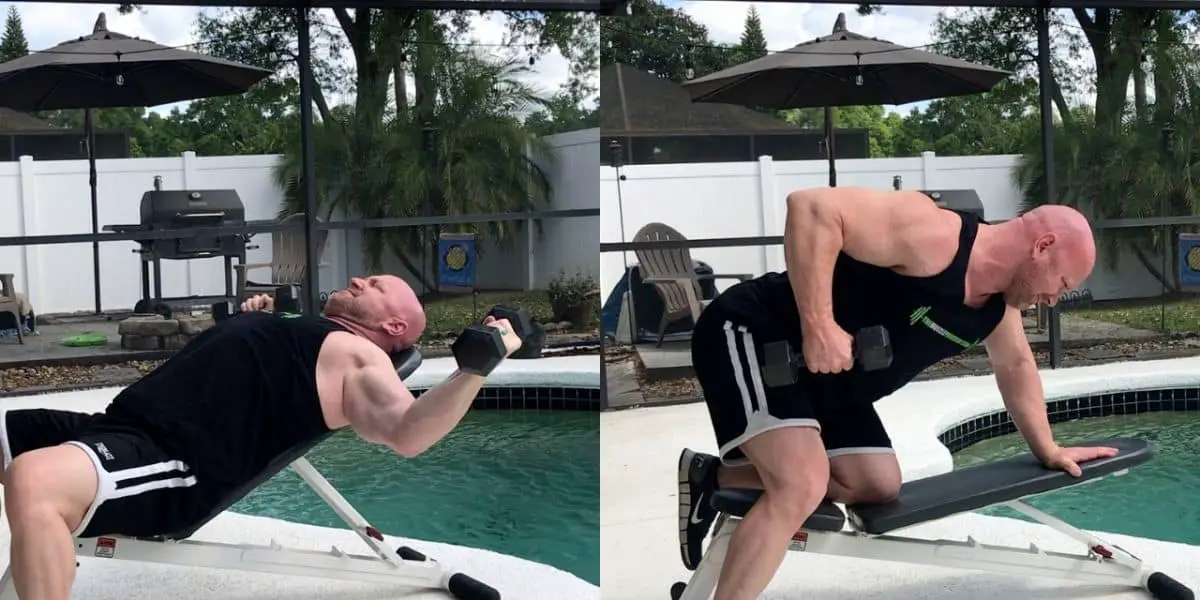
4 Comments
Comments are closed.